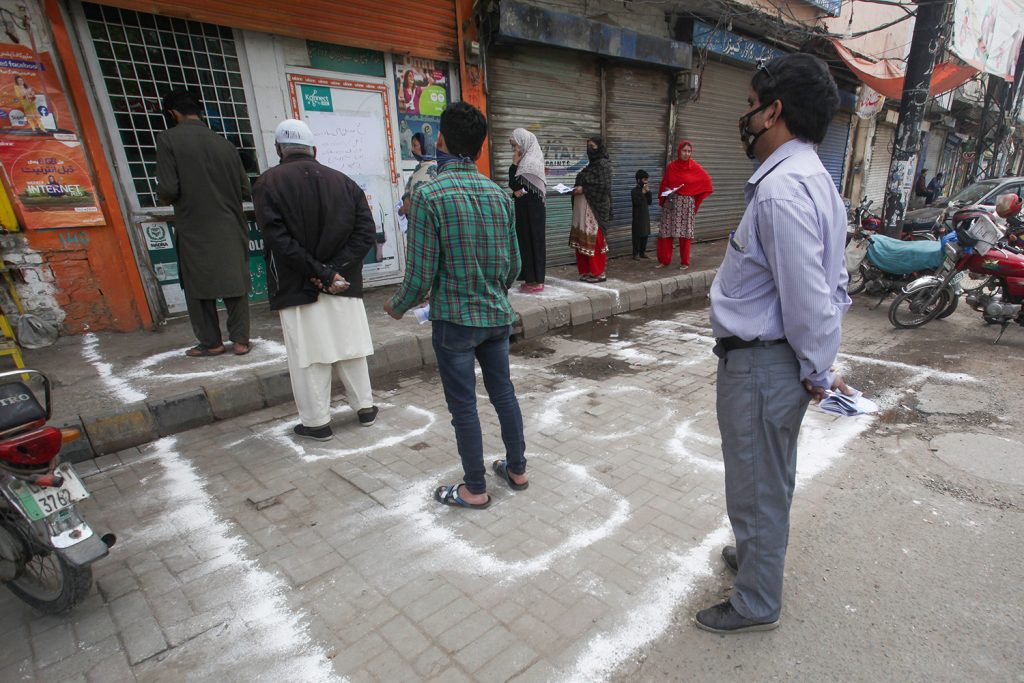Coronavirus hits Pakistan’s already-strained economy, and its most vulnerable

In many ways, it was the anxiety expected by the weakened social classes that led Prime Minister Imran Khan to become frustrated at the closing of the entire country. The human and economic costs of the process will not be calculated yet, but one must note that it was the sensitivity of the vulnerable and not the global anti-science view that caused a delay in the response by the Pakistani government to the disaster.
Where the coalition government has changed, other provincial governments have stepped up. In particular, the government of the Pakistan People’s Party (PPP) in Sindh, plagued by fraud over allegations of corruption and inadequacy, is openly led by Chief Minister Murad Ali Shah. A poor response to Sindh would invite disaster in the city of Karachi, Pakistan’s most populous city and the beating heart of its economy. In Khyber-Pakhtunkhwa, where the rule of the Pakistan Tehreek-e-Insaf (PTI) law, Health Minister Taimur Khan Jhagra has led his government’s response effectively. The weak response there would be that the clusters would have come from beyond the Durand Line.
The fact that provincial governments have been able to rise in a big way is also an affirmation of the 18th constitutional amendment, which has depleted the provinces. More than a decade ago when Pakistan had just begun a democratic transition, this adjustment had its critics. As long as the problem is reduced, perhaps along with its critics will agree that this amendment will allow for effective and timely response from the government during the biggest crisis Pakistan has ever faced.
In recent times the Pakistani coalition government has also begun to take steps to address the economic stability of the crisis. Rs. The $ 1.2 trillion (~ $ 7 billion) financial plan has been disclosed with a focus on reducing economic harm in vulnerable public sectors.
Under the program, direct financial assistance will be provided to 10 million families in the coming weeks. This will be achieved by increasing the monthly transfers received by the beneficiaries of the Benazir Funding Program (BISP) by 50 percent to Rs. 3,000 per month for the next four months, benefiting approximately 4.5 million homes. Secondly, an additional 3 million homes will be identified in the National Socio-Economic Registry (NSER) and given a turnover of Rs. 3,000 per month for the next four months. In the end, the government will identify 2.5 million more families and confirm it with the establishment of regional authorities. Once confirmed, these households will also be given financial support by the coalition government.
In addition, the government has also announced financing for businesses including Rs. 100 billion in tax returns and additional Rs. 100 billion in convertible interest payments. The State Bank of Pakistan has quickly lowered rates by 225 times over the past few days, giving it a chance to breathe in the coalition government – the largest lender in the country – and in businesses facing cash flow problems.
Provincial governments are also preparing their own pockets financially and have a room used to expand the means of transferring money through a coalition government. As the problem progresses, both federal and provincial governments will probably announce more.
For more information, please visit website.
Recommended Blogs:
How to become taxpayer in Pakistan
Check FBR Filer Status
Filer and Non-filer
How to become filer
How to Apply for NTN online
Click blogs to see more.
Also, Calculate your tax now from Tax Calculator.

Comments
Post a Comment